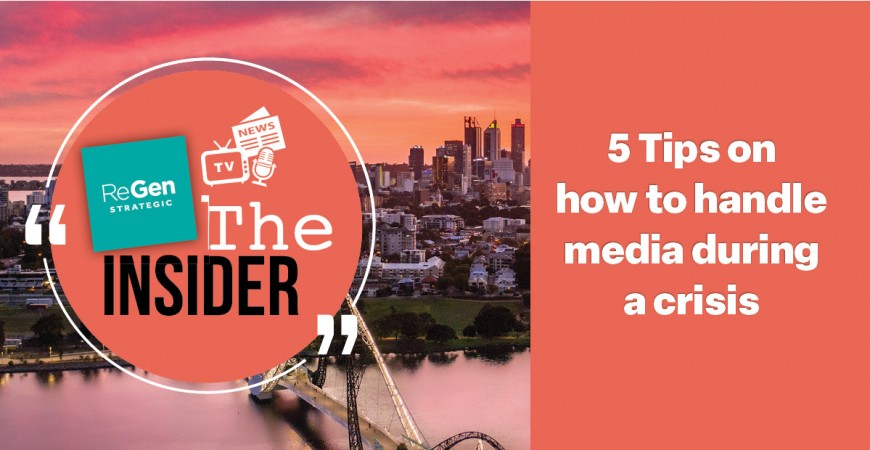During a crisis, the media can be an extremely powerful and effective communication tool. However, you need to plan how you will engage, otherwise things can quickly get out of control. Here’s five tips on how to handle media during a crisis:
Communicate early and often:
During a crisis, journalists will be panicking as they try to gather information from whatever source they can find. If the crisis is about your organisation, you want that source to be you so that you can control the information to ensure it’s accurate.
Even if you don’t have all the information yourselves yet, you need to contact media early and let them know that a statement will be coming and when it will arrive. (In serious situations, your spokesperson will need to front the media in person). Consider whether there is any information you can release in the early stages, even if it is a high-level statement confirming an incident has taken place and that you are investigating.
If journalists can trust that your organisation intends to be cooperative in disseminating timely information, they will calm down. It will also mean you won’t be fielding calls every 30 seconds and can concentrate instead on getting the facts together and putting out a statement.
If the crisis is still unfolding, some journalists will need to file a story every hour. This means you will need to let the media know after your first statement when they can expect the next updates.
Get your facts straight and stick to them:
Before you release a statement, you need to make sure your facts are right – double check everything. While you need to move quickly during a crisis, this can’t come at the expense of accuracy.
Make sure you go into any interviews or media conferences with a factual and clear set of talking points and do not speculate or hypothesise outside of those points. If you get things wrong, it is almost impossible to correct the information across all media sources after it’s out there – you’re much better off not speculating in the first place.
One of the advantages of communicating through media during a crisis is that they can reach millions of people almost instantly, however the downside to this is that if the information isn’t accurate, you can make the crisis worse and damage your company’s reputation.
Treat media as a group:
The media can be very competitive during a crisis, with every journalist wanting to get the scoop. However, you’re setting yourself, and your media team, up for a really hard time if you answer questions from individual journalists.
Instead, make sure your communications are clear that every media outlet will get the same information at the same time. This will help to ensure your messaging is clear and consistent and will (hopefully) discourage journalists from continually calling you.
Establish one source of truth:
Once you have established who your spokesperson will be during a crisis, it’s best to stick with that person. Your message can be distorted if you have multiple spokespeople, and there’s more chance of getting things wrong.
It’s also important in a crisis for the media, and through them, the public, to establish trust in your spokesperson and your organisation which is easier to achieve if you have one consistent source of information.
You also need to provide journalists with one point of contact within your organisation who will field all enquiries to ensure the media are not given conflicting information.
Don’t take it personally:
While you, or your company’s reputation may be at stake during a crisis, for journalists it’s not personal. And while you might feel like you’re under attack, media are just trying to do their job and get as much information out as quickly as possible. Because they’re under extreme time pressure, they may not be at their best, so take a deep breath and try to stay calm!
For more tips on how to handle media during a crisis, and to get the opportunity to simulate crisis scenario media interviews, contact us about one of our Cutting Through crisis media trainings.
 ReGen Strategic
ReGen Strategic